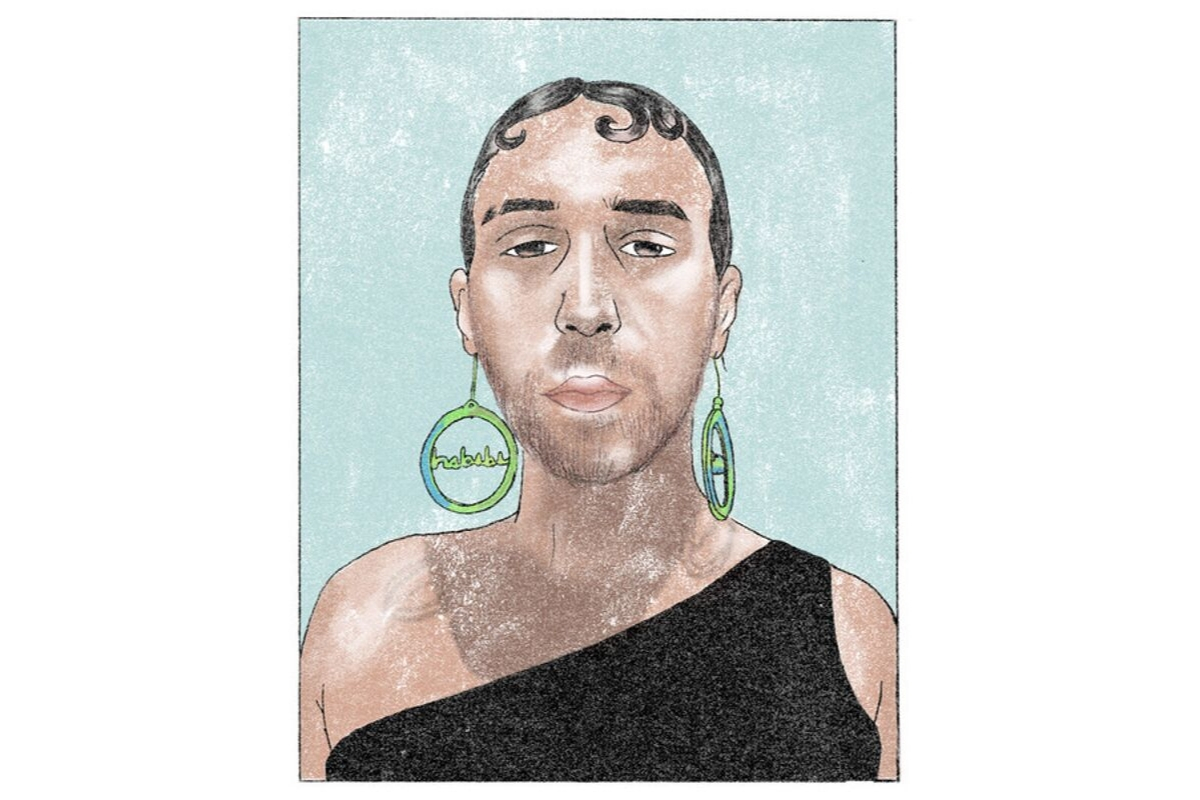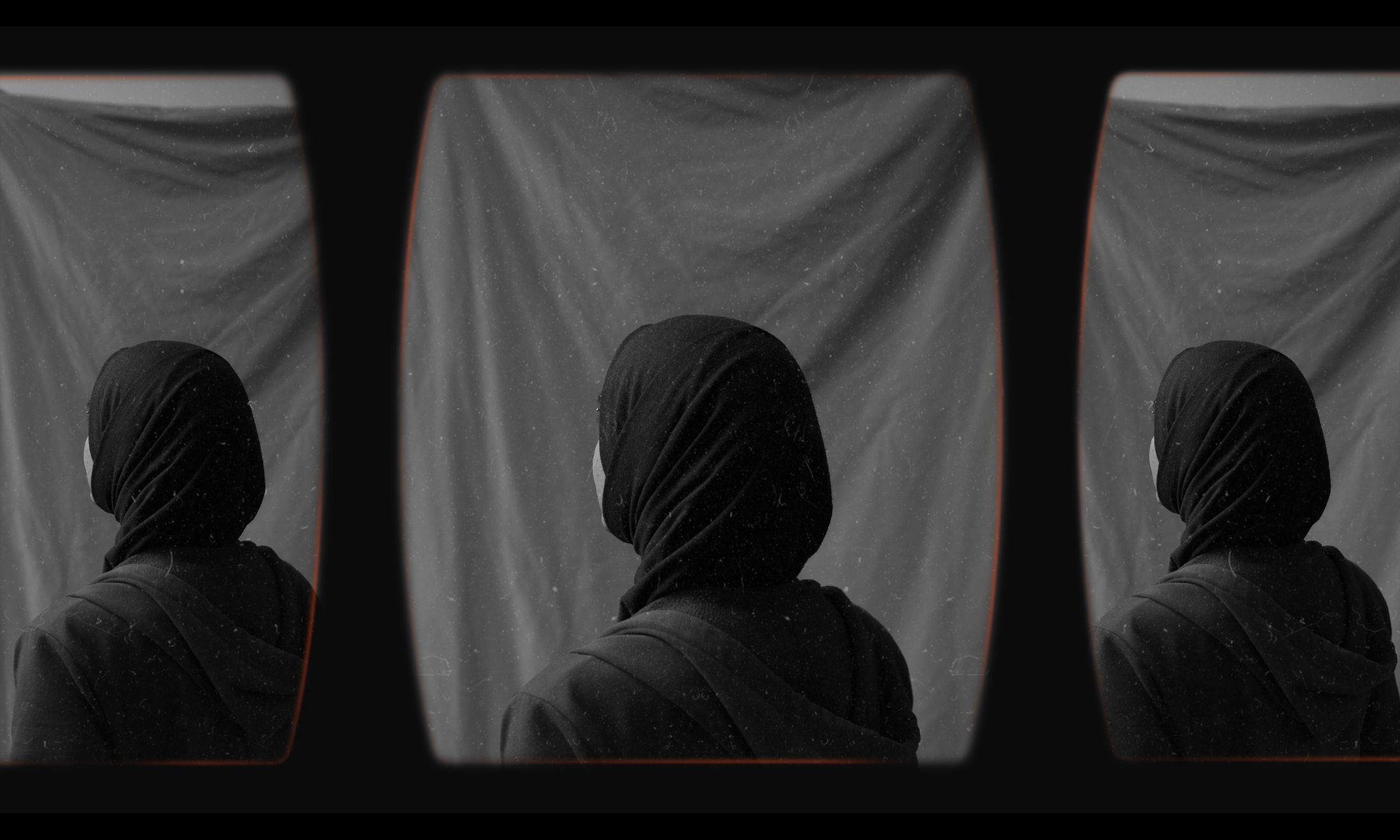
For marginalised people, community love can be just as important as romantic love
Erkan Affan
18 Sep 2019
Illustration via Alexis Jang
Growing up as a queer and gender non-conforming Muslim, you definitely do have to be strong and powerful to find love. It involves breaking taboos and choosing happiness over safety when looking to form connections with other people. After all, we have to navigate complex power structures daily, which constantly aim to undermine our existence and label us as “foreign”. Everything from language, to land, to intimacy itself is used as a weapon with which to dictate where we belong and do not belong, what we can “claim” and what we can’t.
The domain where I have felt this the most, due to Islamophobia, racism and queerphobia, has been through the practice of love. In my mid-twenties, this has started to change as I begin to realise and experience the sheer varieties of love that make it possible to place myself more determinedly in society. As bell hooks writes in All About Love, there is no one definition with which we can agree on what love is – it is an inherently subjective experience and one that implores a plethora of different meanings for different people and places.
So speaking with my trans* and queer siblings, I think it is necessary to emphasise the importance of distancing ourselves from society’s obsession with forms of love that can take on very oppressive roles for us, such as (normative) romantic and familial love. These ideas are forced onto us daily, from our first days, by our parents, corporations and the imagined communities called nations that perpetuate heterosexual monogamy as the ultimate form of success. While all forms of love have the potential to be oppressive, instead we must focus on the forms of love out there such as the platonic and the communal that can positively gratify who we are and what we aspire to be.
“Romance is only one form of many different types of love”
As a minority within a minority, perhaps one of the most important aspirations for me as a queer and trans* Muslim is to focus on communal love. Whilst never necessarily feeling that I need to validate myself through the eyes of another person, facing so much erasure within different parts of society has made me realise the significance of community love. For instance, growing up I’ve been indoctrinated with this notion that I cannot be queer, trans* and Muslim. But my current surroundings make it clear to me that this is a false binary regarding faith, sexuality and gender, that has been created by society.
So conversely, community love can play a big role here in allowing us to develop a form of self-care through the curation and maintenance of a collective belonging: a reminder through your surroundings that your identity is legitimate, that you are not alone. Recognising that there are others like yourself and subsequently disassociating your identity from the traumas of not belonging that you experience can be one of the most liberating and nurturing feelings of love that you can ever feel through community.
I remember when I first stumbled upon a community of outstanding queer and trans* activists of colour from various backgrounds and faiths in London at 21 years old, and it felt like I’d been given the opportunity to finally become myself. Through collective acts like protesting at Pride, I finally felt free from the confines of gaslighting I experienced from the straight, cisgender and Anglo-centric whiteness of my youth.
Years down the line, I see how this activist community continues to expand as a network of people who support each other, collectively organising for the sake of intersectional representation and liberty. I also see how this community continues to nurture me to do the work that I currently do, trying to provide spaces for queer and trans* Muslims and people of West Asian descent to feel like they can legitimately express and represent themselves; countering society’s placement of us on the side-lines of faith, of sexuality, of gender identity, and of belonging.
“Whilst I respect the importance of all different forms of love, nothing for me has quite as potent an effect as the love I have received from communities”
Don’t get me wrong – whilst I respect the importance of all different forms of love and the various impacts they can have on a person’s life, nothing for me has quite as potent an effect as the love I have received from communities. Take social spaces, for example. When I enter into an environment such as Misery, Pride of Arabia or Resis’Dance that holds space for both queer and PoC identities, I experience an extremely affirming form of communal love that subverts the perpetual gaslighting I endure as a minority when navigating an oppressive mainstream society. My queerness isn’t questioned, my faith isn’t undermined, my aesthetic isn’t aggressively consumed. I can just exist. I can be surrounded by others who, like me, are developing a consciousness of their own needs and desires for freedom, whilst always making sure to stay respectful of the needs of their surroundings. It is this form of love that I aspire to always have in my life; the type that lobbies for gender-neutral toilets, safe(r) space policies, consent, sliding-scale entrances within collective spaces.
So yes – love is always political, and we must remember to always redefine how that love can be conveyed in order for it to maintain its political effect. Romance is only one form of many different types of love that a person can experience.









